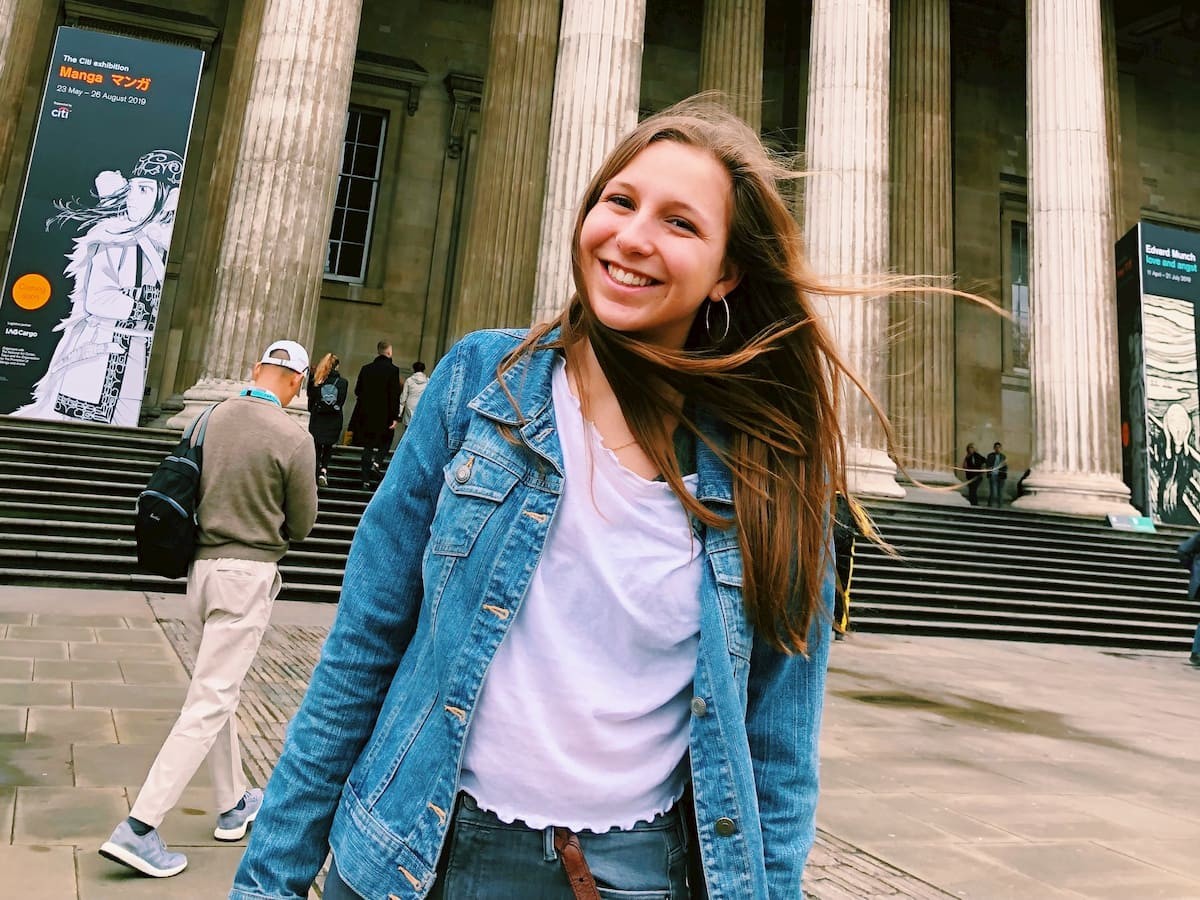Lizzie Johnson '21

Lizzie Johnson
Lessons on Work and Political Culture from a DC Thinktank Leader
This semester I took “Online Communication and Global Society” with Professor Matt Sienkiewicz, which fulfilled the History, Culture, and Society requirement of my IS major. The class combines international studies and communications curriculum, and covers material on the history of the internet, its role in international politics, and humans’ relationship with technology. Professor Sienkiewicz frequently arranges guest speakers on a variety of topics pertinent to the class; we have heard from famous “hacktivists,” youtube video creators, technology experts and more. A few weeks ago Graham Brookie, the Director and Managing Editor of the Digital Forensic Research (DFR) Lab spoke in our class. The DFR Lab is a branch of the Atlantic Council, a Washington, D.C. based foreign policy think tank, and its mission is identifying, exposing, and explaining disinformation using open source research. This means Brookie’s team compiles different sorts of data including photos, tips from social media, and more; verifies their accuracy using methods such as geolocation; then writes up their findings. We practiced geolocation after Brookie’s presentation by matching street level photos with satellite images taken in the corresponding areas - it was tough!
I had the opportunity to chat with Brookie after class to learn more about the DFR Lab, his career, and his best advice for students. As the Director and Managing Editor, Brookie describes his daily work as being "directed by operational needs" of the organization. The DFR lab has a team of twenty five people on five continents, so coordinating across time zones is key. An essential function of his job is trying to beat the speed of disinformation, which leads to one of the most rewarding parts of his job: nailing that disinformation, making new discoveries, or achieving success with new topics. Another rewarding aspect is coordinating with people who really believe in what they’re doing, as it creates a sense of mission around the world. Conversely, Brookie described the hardest part of his job to be the nature of disinformation, as the practices are ever evolving; the vulnerabilities exponential, despite growing awareness of the practice.
I asked Brookie what advice he would give college students as we move into the labor market. He emphasized the importance of doing work we want to be doing rather than looking for positions we want to have: if we work hard on issues we are passionate about, the positions will come. He also mentioned that working hard will put you in the position to say "yes" to opportunities. In Washington, D.C., he said, there is a saying that yopu should "be nice to your interns - you never know when they might become your boss." But he added that we ought to be everyone else, too, because it is the right thing to do. In D.C., he said, it can feel like all interactions are strategic, and that unfortunately, life in D.C. can "turn young people into cyncial operators instead of idealistic contributors."
Brookie described his experience with the Washington, D.C. culture more generally. He has lived there on and off for 11 years, starting as a student and transitioning into life as a professional. He spent time in various positions at the White House and National Security Council before joining the DFR Lab. One of his favorite parts about living in D.C. is that everyone there wants and gets to be a part of something bigger than themselves and believes in participating in the system. The city, Brookie commented, is also unique, livable, "smaller than you think," and full of intersecting professional communities. It is a place where people can always learn.
Lastly, I asked Brookie about what he believes to be the biggest threats to American and the world at this time, and what if anything, we as young people can do. He argued that our biggest national security vulnerability is our own polarization. Targeted disinformation can contribute to this polarization and prevent us from making collective decisions. Our capactiy to face other national security threats, including climate change, terrorism, and acsendant nations depends on us working together. This is both a pessimistic and optimistic way to look at our current state of affairs; it offers a dark picture of the challenges but it also means we have the power to do something. Brookie closed by quoting the inspiring and call to action -inducing words one of his mentors: “The world is run by those who show up. Young people have to show up to make a difference”.
I want to thank Professor Matt Sienkiewicz for organizing such great guest speakers for our class, and for helping set up this interview opportunity with Mr. Graham Brookie. I would highly recommend his class!
Lizzie Johnson '21
December 2019

